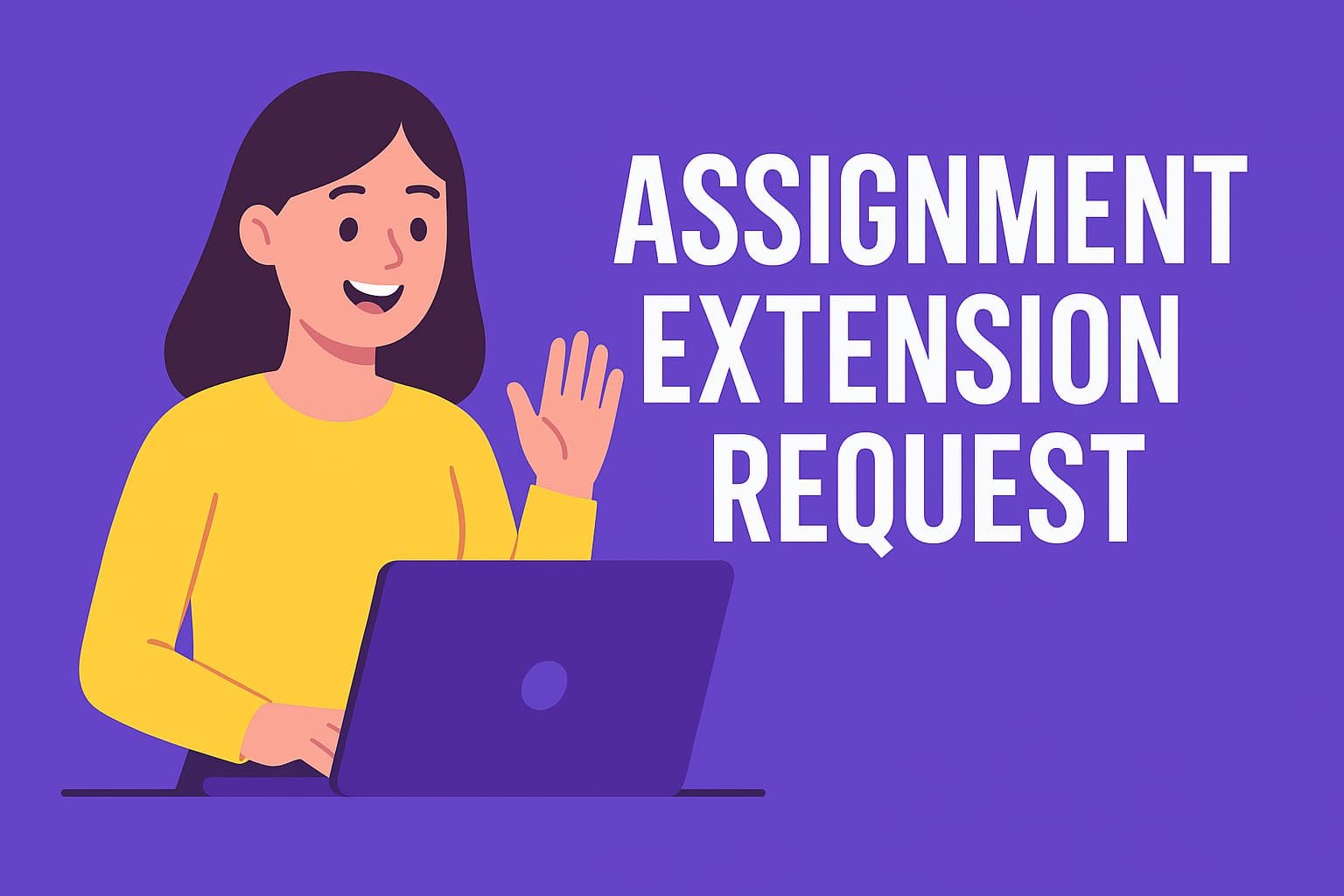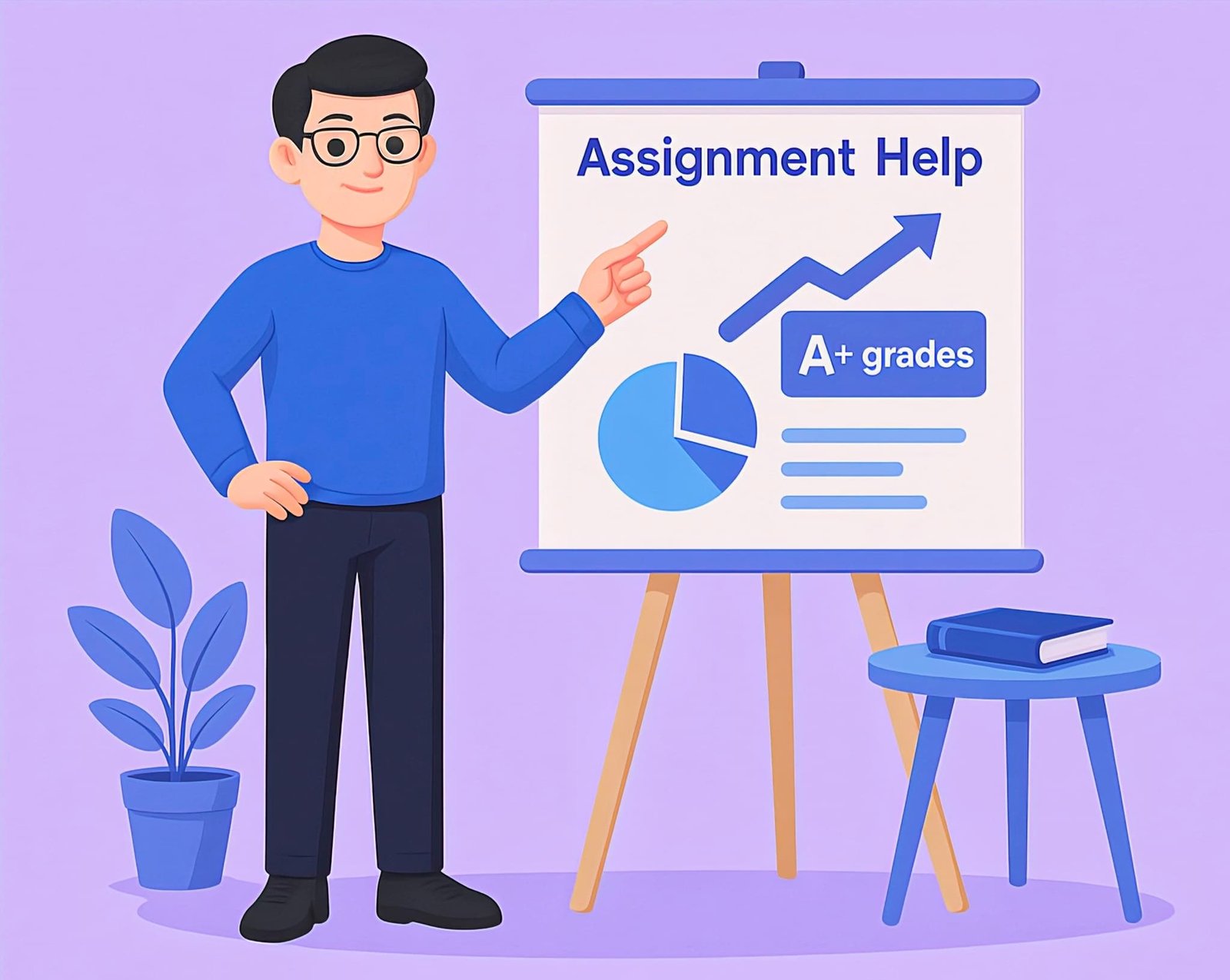Assignment Extension Request (UK): Email Templates, Evidence & Fast Follow-Up (2025)
Ask for more time the right way—UK tone, proof that lands, and templates you can paste now. If the answer is “no”, avoid penalties and submit safely with ethical 2–24h editorial support.

Contents
TL;DR — ask early, show proof, keep it short, and offer a date you can hit
A strong UK extension email is polite and direct: explain the event, attach credible evidence, propose a realistic new date, and confirm you understand the assessment rules. If an extension isn’t granted, switch to mitigation or deferral and protect your mark with an ethical 2–24-hour editorial pass via Urgent Assignment Help or WhatsApp +44 7578 398488.
Extension vs deferral vs mitigating circumstances (what’s the difference?)
Extension keeps the same assessment but gives extra time (often 24–72 hours or up to a week). Deferral moves your attempt to a later period with no late penalty; some universities treat it as a first attempt. Mitigating/Extenuating circumstances is the formal process for significant issues (illness, bereavement, serious events); if approved, penalties may be waived or an uncapped attempt allowed. Choose the route that matches the duration and impact of your situation.
If the deadline is near and your case is borderline, keep options open: request the extension, read the late-penalty rules, and plan a clean submit with our same-day editorial support.
When to request an extension (timing windows and common rules)
Request an extension as soon as the problem occurs and before the deadline wherever possible. Late requests may be accepted only if the event prevented you from applying earlier (e.g., hospital admission). Weekend and bank-holiday rules vary; deadlines on those days often roll to the next working day—ask if unsure.
How much time to ask for
Be realistic. A concise, evidence-backed request for 24–72 hours is more successful than a vague “as much as possible.” Offer a clear date/time in UK format, e.g., “Wed 20 Aug, 12:00 (UK)”.
Who to email
Default safe list: module convenor, Programme Office, and the School/College mitigation inbox. Use your university email; include student ID, module code, assessment, and original deadline. Subject line: Extension request – [Module code] – [Assessment] – [Your name, ID].
Grounds that succeed (and what usually fails)
Strong grounds include short-term illness with a GP note; bereavement; acute caring responsibilities; disability flare-ups with existing adjustments; crime incidents with a reference; technical failures in university systems; and unavoidable official appointments (visa/immigration). Weak grounds: workload you knew about, general stress with no evidence, holidays, poor time management.
Email templates to paste (UK tone)
Copy, personalise, and send from your university email. Keep attachments small and clearly named: YourName_ModuleCode_Evidence.pdf. We can tailor the wording in 2–24 hours—message WhatsApp for a quick check before you press send.
Evidence pack checklist (make the decision easy)
| Evidence | What helps | How to attach |
|---|---|---|
| GP/Medical note | Dates that match the affected period; brief description; fit-for-study advice if given. | PDF scan; file name with your ID and module code. |
| Bereavement evidence | Letter, funeral notice or similar. Keep language minimal and respectful. | PDF or image; redact personal numbers if sensitive. |
| Disability plan | DSA/Support Plan reference; note that extensions can be a reasonable adjustment. | PDF; highlight relevant lines. |
| Technical outage | Screenshots with timestamp; IT ticket number; any official status page note. | Combine into one PDF if possible. |
| Caring responsibilities | School/authority letters; appointment slips; brief note from organisation. | PDF; ensure dates align with request. |
| Visa/immigration | Appointment letter/email; reference numbers; mandatory nature stated. | PDF; redact identifiers you don’t want stored. |
Attach only what’s necessary. If documents will take a day or two, say “evidence to follow” and propose a date you can guarantee. For a rapid pre-submit quality check of your assignment, use our 2–24h editorial support with free Turnitin & AI checks.
If your extension is refused: late penalties and next steps
If the answer is “no,” don’t panic. Many policies apply a percentage deduction per working day, or allow deferral/mitigation with evidence. Decide whether to submit on time with a shorter, tighter piece or switch to a deferral. We can triage structure, clarity and referencing same-day so you protect marks either way. See: Late Submission Penalty UK.
20-minute “tonight” plan
- Open your brief and rubric; confirm deadline, submission portal and file rules.
- Pick the right template above; replace placeholders in [brackets]; propose a realistic date/time.
- Assemble evidence into one PDF: Surname_ModuleCode_Evidence.pdf (dates must match).
- Proofread your email under 200 words; keep tone factual and polite.
- Send from your uni email; CC the Programme Office; set a reminder to follow up.
FAQs
How many days can I get? Most extensions are 24–72 hours; a week is possible with strong grounds. Longer cases usually move to a deferral.
Will my mark be capped? Extensions don’t cap marks. Late submissions without approval may incur deductions per working day.
Can I request after the deadline? Sometimes—if the event made earlier application impossible. Provide clear evidence and ask promptly.
Do weekends count? Policies vary. Many treat penalties in working days; deadlines landing on weekends usually roll to Monday noon—confirm locally.
Group work? Yes, but it’s more complex; staff may prefer a deferral slot so the team isn’t disadvantaged.
Useful links
UCAS: ucas.com · GOV.UK Student Finance: gov.uk/student-finance · Office for Students: officeforstudents.org.uk · Turnitin: turnitin.com
Need quick, ethical support? Try Same-Day Assignment Help UK.
Need help today?
We provide ethical editorial support—structure, clarity and referencing—so authorship stays yours. Every order includes free Turnitin, plagiarism & AI checks before you submit.



Your article helped me a lot, is there any more related content? Thanks! https://accounts.binance.info/register-person?ref=IHJUI7TF
Sprunki Game truly elevates the Incredibox experience with its rich soundscapes and creative depth. It’s inspiring to see how far musical innovation has come-check it out at Sprunki Game!
I don’t think the title of your article matches the content lol. Just kidding, mainly because I had some doubts after reading the article. https://www.binance.com/es-AR/register?ref=UT2YTZSU